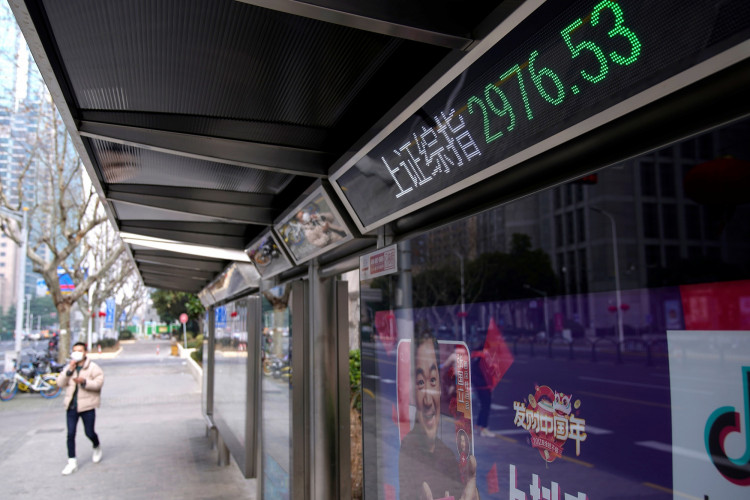The stock market reopening in China became one of the worst days in years for listed companies and investors as the entire market reacted to the ongoing crisis in the country. Major indexes dipped on Monday amid the ongoing coronavirus outbreak that has managed to cripple companies in industries such as retail, travel, and tourism.
During the first day of trading, following the stock market closure for the Lunar New Year holidays on January 24, major indexes such as the Shanghai Composite and the Shenzhen Component Index fell by 7.7 percent and 8.5 percent, respectively. According to industry estimates, the drop in the major indexes equated to a combined loss of $445 billion in market value.
The dip was Shanghai's worse day since August 2015, often referred to by traders as Black Monday. In Shenzhen, Monday saw the worst single-day percentage drop not seen since 2007.
The plunge during the re-opening of the stock markets also managed to affect the nation's currency, with the Yuan's value dropping by 1.6 percent in onshore trading. The dip sent the yuan below the seven-to-one US dollar ratio. The Yuan also fell below the ratio in offshore trading even if it has been openly trading since last week.
Analysts have pointed out that global markets had enough time to react to the rapid spread of the coronavirus in China and the rest of the world. However, Monday was actually the first time for the Chinese market to react, hence the massive dips. Prior to the holiday season and the temporary break in trading, recorded cases of the coronavirus in the country were only around 800. This week, the virus has already infected more than 17,000 people.
The market reaction this week could have been much worst was it not for the rapid response of China's central bank. On Sunday, the People's Bank of China announced that it would be injecting 1.2 trillion yuan, or roughly $173 billion, into the Chinese markets through short-term bonds. The added ability for banks to lend more money is expected to cushion the blow for companies affected by the coronavirus outbreak. According to the PBOC, the added liquidity should keep currency markets reasonably stable as they react to the crisis.
PBOC deputy governor, Pan Gongsheng, announced that the bank would be coordinating closely with financial institutions and markets to come up with new policies and other measures if necessary. Protecting the stability of China's markets is the bank's and the government's top priority.






